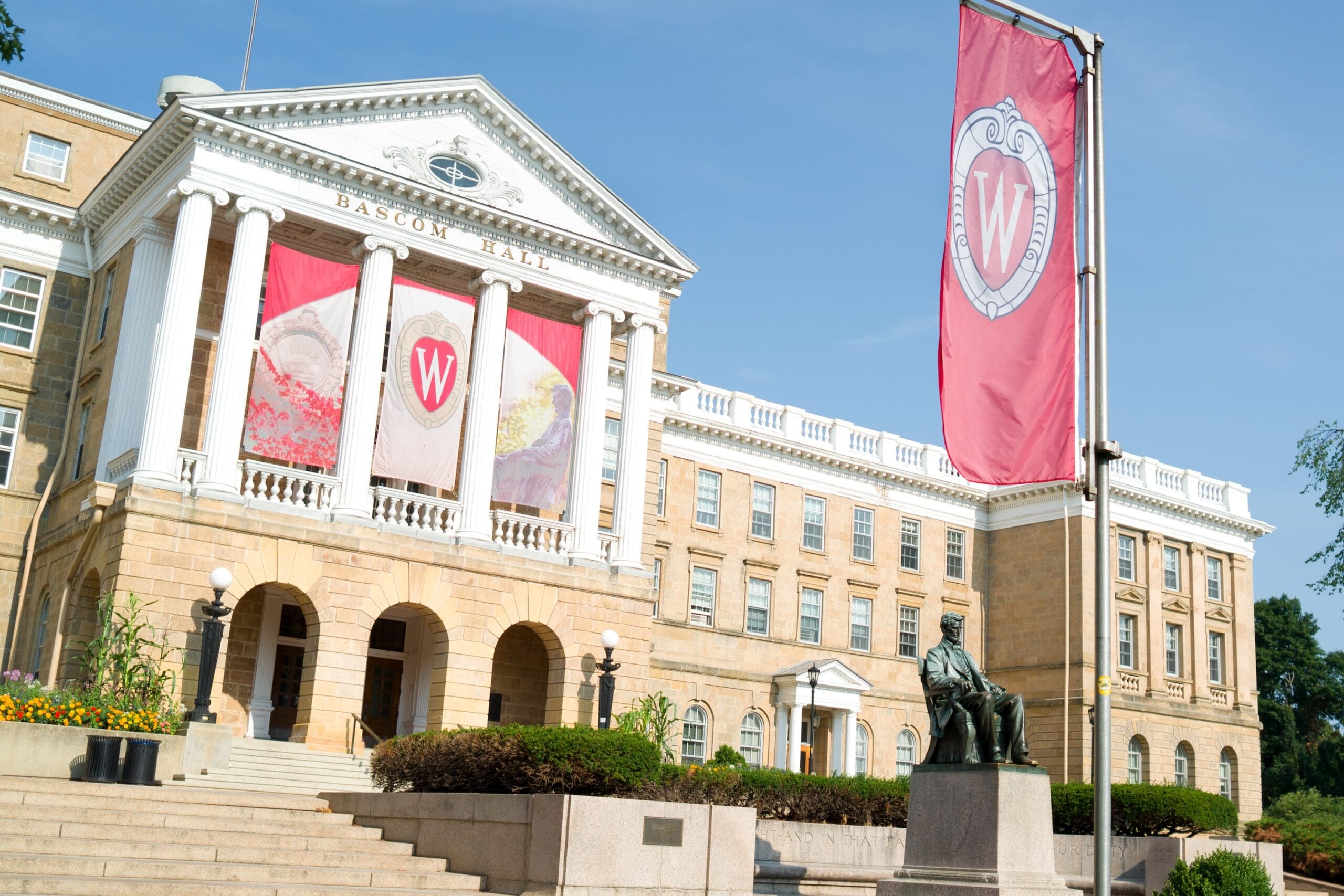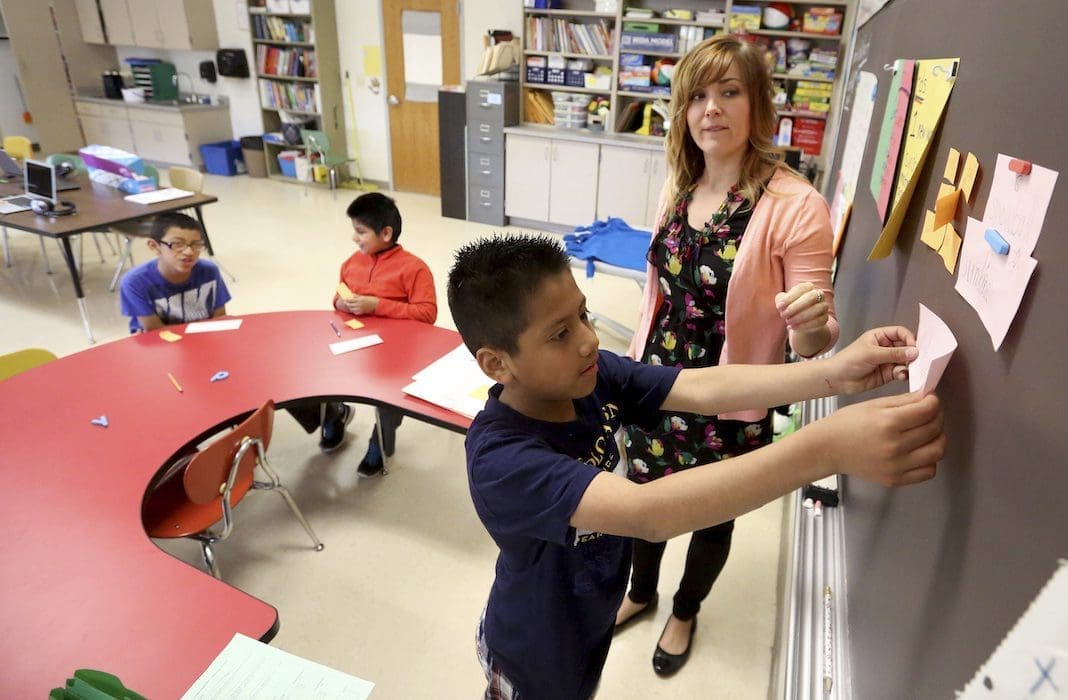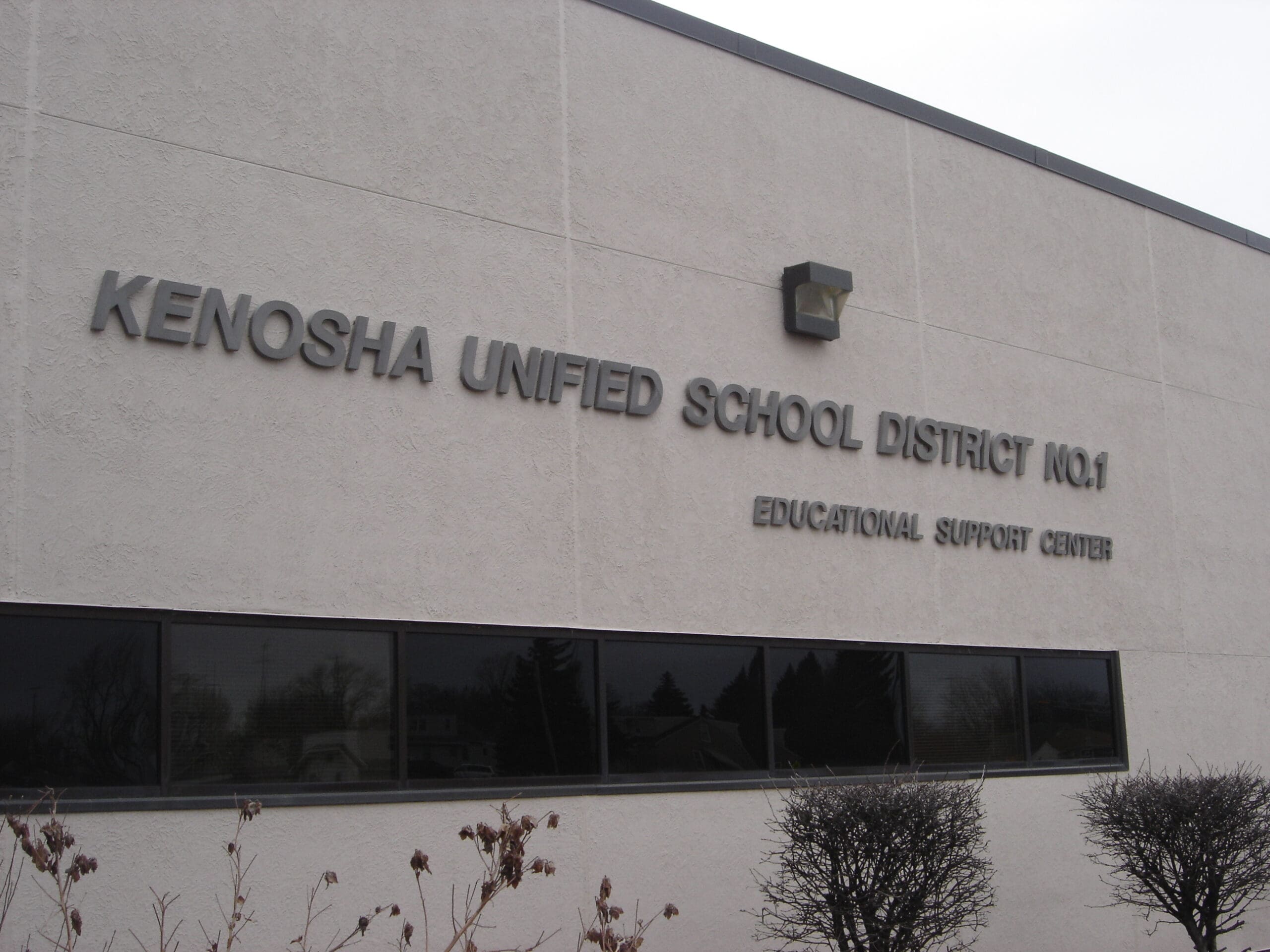Wisconsin’s top high schoolers will be guaranteed admission to UW schools
High school administrators and counselors think it will break down barriers, but hope it won’t limit students’ potential post-graduation options.

Wisconsin high school seniors who place in the top of their class will be guaranteed admission to University of Wisconsin schools under a bill Democratic Gov. Tony Evers signed into law on Feb. 20.
Republican state lawmakers who sponsored and supported the bill said it would give more students a chance to attend a UW school. The law takes effect at a time when the UW System is facing declining enrollment and financial woes. UW–Milwaukee announced on Monday that it would close its Waukesha campus in 2025, the fifth UW System branch campus to shutter since 2018.
Evers hopes the new law will strengthen the state’s workforce and keep students and workers in Wisconsin.
“I’m glad to be signing this important legislation that will help address our state’s generational workforce challenges by ensuring greater access and opportunities for our kids to go to school, start their careers, and build their futures in Wisconsin,” Evers said.
High schoolers in the top 10% of their class will be guaranteed admission to any UW system school of their choice except for UW–Madison, where only students in the top 5% will be guaranteed admission.
Public school boards and the governing bodies of private, tribal and charter high schools will be required to rank students based on grade-point average once they finish 11th grade if there are at least 15 students in the class. The ranking system will begin in the 2024-25 school year for high school students who want to start college in the 2025-26 school year. Students will still have to apply to the universities if they want to be considered.
The UW system is also rolling out a direct admissions program this summer as another way to boost enrollment. The program, which is being used by all UW schools except UW–Madison, UW–La Crosse and UW–Eau Claire, will automatically admit certain students based on GPAs and coursework without them needing to apply.
High school administrators and counselors said they aren’t sure what effect the new guaranteed admission will have on students, and they want to wait and see how the program is rolled out.
“I think it’s a positive for many of our students. I think that some students might not see themselves as four-year university students. They don’t see themselves in that role. So giving them exposure to that option I think is really beneficial,” said Carrie Wineke, a counselor at Mount Horeb High School. “To see it as an attainable option, I think, is beneficial for a lot of kids.”
Mount Horeb High School Principal Cody Lundquist hopes the new rule will break down barriers for students who may not see college as accessible, such as first-generation students or students who speak English as a second language.
More and more students are looking at options beyond four-year colleges and instead are considering technical college, apprenticeships, or jumping right into the workforce, and Wineke said she didn’t want this new guaranteed admissions program to pigeonhole students: “It’s so individual, and I think that students need to be really considering what their career goals are and what the appropriate university or program to get them prepared for that career is.”
Staying focused on a student’s individual career goals will remain a priority, Lundquist said, noting that a student may be guaranteed admission to a college that doesn’t have their preferred program.
“If we have a student who’s on a career path in a certain area, let’s say hospitality … how do we make sure that their courses are set up in their path to get there if we know that’s something they’re going to be interested in?” he said.
Wineke and Lundquist both said they worried that the new program could discourage students from challenging themselves with rigorous courses or classes that would help them to prepare for college and a future career because they fear it could hurt their ranking.
Solely ranking students based on their GPA also worries Wineke and Lundquist because it doesn’t take a holistic approach that considers what courses and extracurriculars students are involved in. In addition to ranking, the district already uses what is called a laude system to reward students for academic achievement without ranking them against their peers, and it participates in the Badger Conference Top 10 Scholars program, in which the top 10 students at each school in the conference are recognized.
Most of the top 10% of students at Mount Horeb are already thinking about four-year college and are likely being accepted to UW schools already, Wineke said, so she’s not sure how much the new law will change things for students.
Other states have implemented their own guaranteed admissions programs. In Texas, lawmakers introduced the Top 10% Plan in 1997 as a way to open up admission to a state university to a more diverse group of students after the state was barred from considering race in college admissions.
The program had a positive effect in the beginning, but after reviewing 18 years of data, researchers found that the program had made no meaningful changes to which high schools sent students to state universities, according to the Texas Tribune.
“I think this will be a really interesting time for our students, and I look forward to some of those barriers for our students who are disenfranchised being torn down,” Lundquist said..




